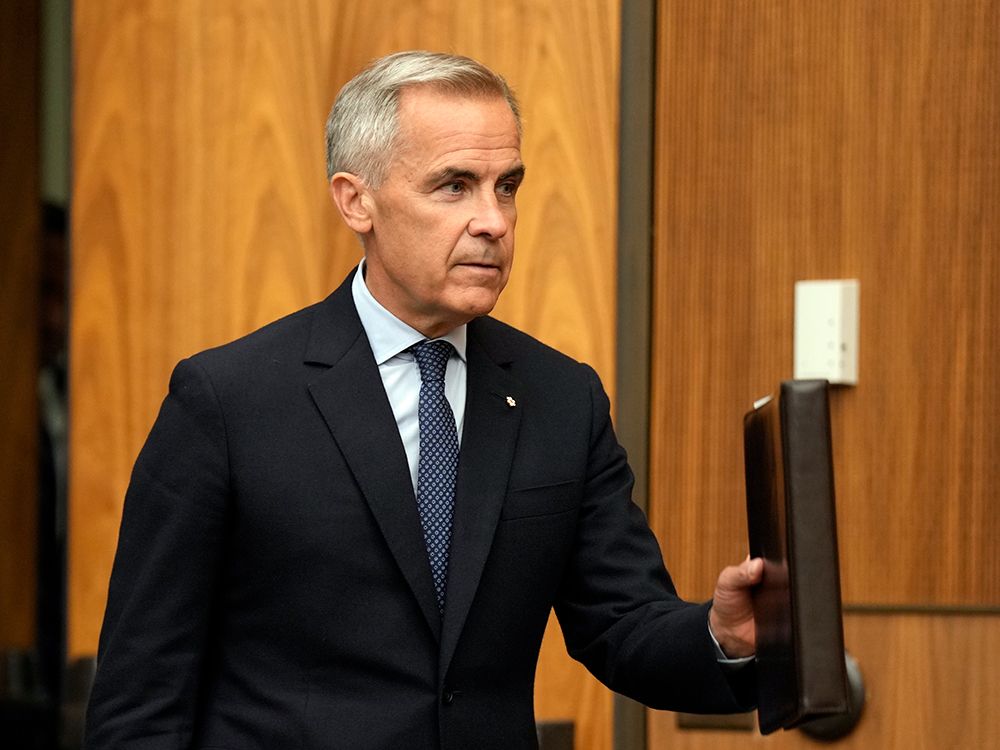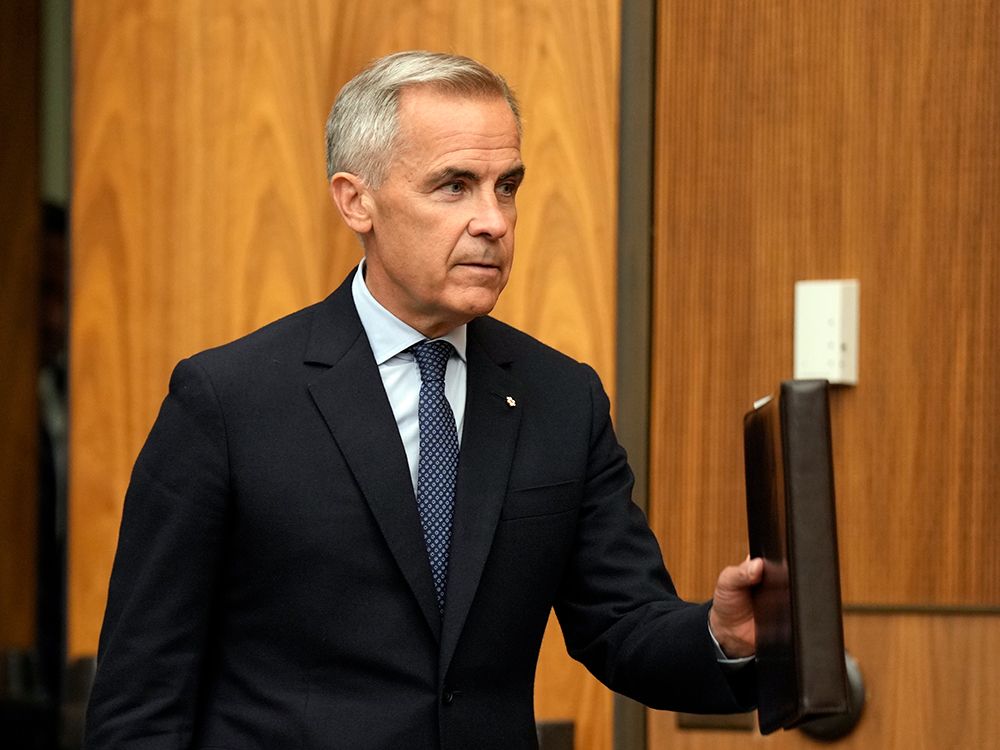
OTTAWA — When Prime Minister Mark Carney was asked if he consulted with the United States prior to announcing
Canada’s intention of recognizing a State of Palestine
, he did not offer a clear “no” but his response pointed in that direction.
Carney clearly mentioned speaking this week with France President Emmanuel Macron and U.K. Prime Minister Kier Starmer — both of which have announced their intention to recognize a Palestinian state at the United Nations General Assembly in September.
Carney said he also had conversations with the President of the European Commission, Ursula von der Leyen, and Canada’s Ambassador to the UN, Bob Rae.
U.S. President Donald Trump was apparently not given the same heads up, and he promptly expressed his displeasure on his social media platform hours later.
“Wow! Canada has just announced that it is backing statehood for Palestine,”
“That will make it very hard for us to make a Trade Deal with them. Oh’ Canada!!!”
After meeting with his cabinet Wednesday, Carney told reporters that the recognition was conditional on the Palestinian Authority, which governs the West Bank, going forward with significant reforms which include demilitarization and holding a general election in 2026.
He added Canada’s longstanding hope for a two-state solution negotiated between the Palestinian Authority and Israel was “no longer tenable” because of the war in Gaza.
Carney called the U.S. an “essential partner” for peace in the Middle East, among many areas of the world, but made it clear Canada would be moving without its neighbour.
“We make our own independent foreign policy positions,” he said, later clarifying “independent of the United States.”
Louise Blais, who was Canada’s Deputy Permanent Representative to the United Nations in New York from 2017-2021, said this announcement marks a significant change of position for Canada, which has been more or less aligned with the U.S. on Israel for years.
“At minimum, I think it would have been prudent … to have had a conversation. It’s possible it took place. But it certainly doesn’t seem that way,” said Blais in an interview.
“It is always a good idea not to take allies by surprise,” she added.
A source close to Carney’s thinking, speaking on a not-for-attribution basis to speak more freely, said there has been a sharing of views between Canada, France and the U.K., but their subsequent announcements on Palestinian statehood were not a co-ordinated effort.
“This is an example of like-minded countries acting like-minded,” said the source.
Carney explained on Wednesday that “it does matter that others are moving … because it increases the prospect of success.” But he added that the “rights of people to self-determination” are at the core of this decision for the Canadian government.
“We have long … felt that this should come later in a process and that our recognition … of the State of Palestine, should come a point of maximum impact during a peace process,” he said.
“We’re now at a position … where, in our judgment and the judgment of others, the prospect of a Palestinian state is literally receding before our eyes,” he added.
Blais said Carney is clearly signalling that Canada is aligning itself with its European partners more closely, but warned he has to weigh that decision “very carefully.”
“Geography matters, and our neighbour is a superpower,” she said. “And last time I checked, we still very much depend on them for our national security, and it will be so for a while, and so we have to be fairly balanced and careful about that.”
It is also a question of timing. Blais said Trump definitely voiced “a level of annoyance” that was not preferable as Canadian negotiators were trying to get to a trade deal by Friday.
White House press secretary Karoline Leavitt said Trump “expressed his displeasure and his disagreement” with the leaders of France, the U.K. and Canada on that decision.
“He feels as though that’s rewarding Hamas at a time where Hamas is the true impediment to a ceasefire and to the release of all of the hostages,” she said.
But Trump is also dealing with growing displeasure towards Israel within his own ranks. This week, Marjorie Taylor Greene became the first House Republican to publicly refer to the humanitarian crisis in Gaza as “genocide.”
U.S. special envoy to the Middle East, Steve Witkoff, and U.S. ambassador to Israel, Mike Huckabee, will be travelling to Gaza on Friday to inspect food aid distribution sites in the area and hear first-hand from Gazans about their living conditions, said Leavitt.
Following their visit, they are expected to secure a plan to deliver more food.
Canada, for its part, partnered with Jordan to arrange airdrops of aid in Gaza on Thursday.
“Much more aid is needed and Canada will continue to do all it can to ensure it is delivered to the Palestinians in Gaza who so desperately need it,”
said Foreign Affairs Minister Anita Anand in a post on X.
— With files from Christopher Nardi.
National Post
calevesque@postmedia.com
Our website is the place for the latest breaking news, exclusive scoops, longreads and provocative commentary. Please bookmark nationalpost.com and sign up for our newsletters here.
